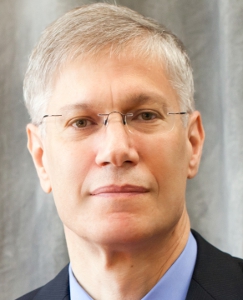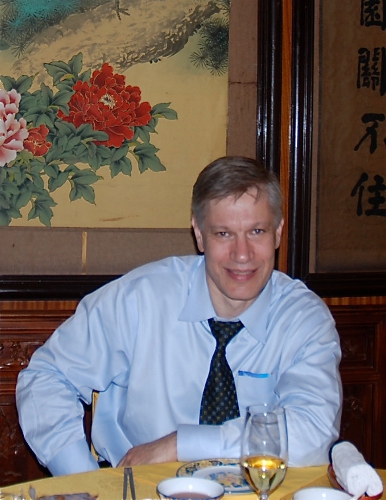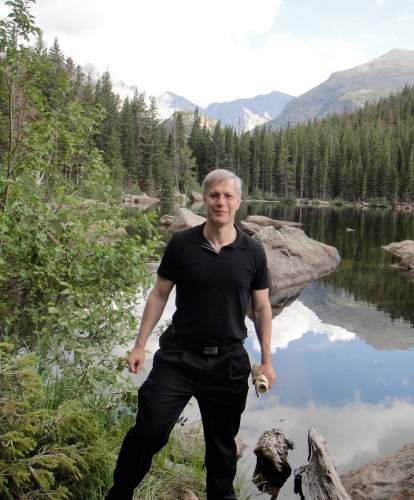- Why Does Yaron Brook Work At The Ayn Rand Institute?
- Is Ayn Rand Relevant In Latin America?
- Does Ayn Rand Encourage Emotional Repression?
Full Interview Audio

Personal Info
Sports Teams:Boston Red Sox, Celtics, 49’ers
Favourite Books:
- Atlas Shrugged by Ayn Rand
- Fountainhead by Ayn Rand
Most Influenced By:Ayn Rand, Steve Jobs, John Allison
Twitter: http://twitter.com/yaronbrook
Personal Blog: http://capitalism.aynrand.org
Website: http://aynrand.org
Relevant Link: http://www.facebook.com/ybrook
Interview Highlights
This is a condensed, lightly edited transcript of an audio interview. The full audio is available and highly recommended. The interviewee may post clarifications in the comments.
Adrian Bye: Today I’m here with Yaron Brook who is from the Ayn Rand Institute. Yaron, thanks and welcome. 
Yaron Brook: My pleasure.
Adrian Bye: Can you tell us a little bit about your background and where you came from?
Yaron Brook: Sure. I was born and raised in Israel, served in the Israeli military, got my undergraduate degree over in Israel. I moved to the United States in 1987, got my MBA and then my PhD in finance. I was a finance professor for seven years and then took this job at the Ayn Rand Institute and have been president and executive director since 2000.
Adrian Bye: You grew up in Israel?
Yaron Brook: I grew up Jewish, I’m Jewish ethnically I guess, culturally to some extent, not religious.
Adrian Bye: Tell us about what you do at the Ayn Rand Institute.
Yaron Brook: The Institute itself exists to promote Ayn Rand’s ideas. It exists to bring Ayn Rand’s ideas into the culture, to have a positive impact on the world, to bring about a culture of reason, of self-interest and ultimately, capitalism. I both run the institute as the CEO in terms of the organization – we have over 15 employees and a budget in excess of ten million dollars annually – and I’m the prime spokesman for the institute. I spend a lot of my time doing interviews like this, but also speaking in front of student groups, business groups, intellectual groups, writing. I have a new book that came out in September called ‘Free Market Revolution: How Ayn Rand’s Ideas Can End Big Government’. So, in a sense, I have an administrative responsibility of running the institute, organizing and raising money for it, and the responsibility as public spokesman, intellectual, writer, speaker and advocate for these ideas.
Adrian Bye: You are a smart guy. Anyone who’s really gotten into Ayn Rand understands intellectually how to do business and how to get things done. You don’t need to do this, you could be off working your way being a billionaire rather than what you’re doing. So why do this?
Yaron Brook: Because I love it. It’s a lot of fun and I truly enjoy what I do. And because I care about the world I live in. I care about the world in which we live, about my kids. I want to live in a better world, I want my kids to live in a better world. And I want good people to live in a better world. I benefit from it, everybody that I care about would benefit from that. I’m a fighter, I want to fight for that better world. I’m passionate about the ideas, about the philosophy, I’m passionate about conveying those ideas, conveying that philosophy. And I enjoy the process of teaching and communicating with people. I get a kick out of being able to stimulate thought in other people’s minds. I love the idea that the light comes up in somebody’s eyes when they ‘get’ something for the first time. I enjoy the process and the end result, as the end result is very important with these ideas. They changed my life, they had profound influence on the way I lived my life. I think these ideas can change the culture, the world in which we live, and I dedicated my life, at least the rest of my life, to fighting for those ideas. 
Adrian Bye: Ayn Rand is critiqued as her writing being poor quality. I’m a big fan and I think her writing isn’t always that great. By the left she is certainly one of the most hated people in the US. You’re putting yourself in a pretty controversial spot to be fighting for that.
Yaron Brook: What could be more fun than that? Sorry to disagree with you about her writing. I think her writing is brilliant, her novels are brilliant. I can see that people disagree about these things, but the world disagrees with you. The world thinks these ideas are wrong, the world thinks Ayn Rand is wrong. The challenge is how do we convince people, how do we change people’s minds? How do we communicate these ideas in a way that shows the truth behind these ideas? It’s a fun, interesting challenge. It’s a frustrating challenge often because it’s hard. But that’s what makes it interesting. If that was easy I’d probably go to Wall Street trying to become a billionaire. That would be challenging and interesting. The fact that it’s challenging, that it’s interesting, that it’s fun and I go up against really smart people who disagree with me, that makes it interesting and fun. The fact that people don’t agree with me doesn’t make or break this proposition. It doesn’t change for me the truth of what I’m fighting for and why I’m fighting for it.
Adrian Bye: Right. I want to tell you about when I read Atlas Shrugged. I found the first hundred pages a bit tough to get through. Once I got through those, it was like ‘Oh my God, this stuff is making sense. I’m seeing all these things I never saw before’. I felt like my brain was being rewired. So many things started to become more clear.
Yaron Brook: I grew up in Israel, which at that time was quite socialist, quite oppressive if you were in business or if you had any aspirations from a business perspective. And I grew up a socialist. My story about Atlas Shrugged is a little different because I grew up as a socialist, a collectivist, I grew up as an altruist, everything that Ayn Rand is against. To a large extent I was taught that those are the truths. So when I read Atlas Shrugged it was like, this can’t be true. This is nonsense. She can’t be right. I fought it, I argued with her on every page. It took me months to read because I wasn’t convinced. I fought it and she had to literally walk me through the book and convince me of the truth of her ideas. And by the end I was a hundred percent convinced. But I had experienced both internally, inside myself, what it meant to believe in socialism, altruism and collectivism, and what a culture that believes in that is like. So I felt like I knew it in a sense in my soul.
Socialism is the least empathetic social system. I think capitalism has a lot more empathy than socialism, capitalists are generally far more benevolent and far more generous than people who are collectivists and socialists. I think the world has it backwards. When you visit a country like America, particularly in a period when it was free, you would have experienced a lot more empathy than you would in some of these socialist countries. Socialism really also destroys people’s souls. It turns them into envious, miserable, malevolent people. I remember seeing this more than anywhere else on the Kibbutz in Israel. This Kibbutz is this socialist Utopia. Everybody gets treated the same. No matter how much you earn in a sense you get the same apartment, you get the same food, you get the same television set, everything is the same. It’s completely egalitarian. And people resented one another. They back stabbed, they gossiped, they behaved meanly towards one another. It was just a sick, sick social environment to live in because it has this profound impact on the way people view the world, the way people view themselves. You can’t get self-esteem in a world like that so you’re desperately unhappy. That unhappiness projects onto the way you’re treating other people. Socialism is an incredibly destructive philosophy for living as a human being. Not just as a political philosophy, as an individual. 
Self-esteem is the key to human happiness. You cannot be happy without self-esteem. Ayn Rand’s view is that the purpose of life is to be happy. The purpose of morality is to guide us towards happiness, towards a flourishing, fulfilling, happy, successful life. And in order to achieve that one has to have self-esteem. But to have self-esteem one must place value on one’s own happiness and one’s own life. The moral code of socialism and collectivism, the moral code of most religion and most secular philosophy today says no, you shouldn’t really think about your own happiness. It’s other people’s happiness, the well-being of other people that’s important. You cannot gain self-esteem if you believe that. If you really believe that your life is meaningless, that the purpose of your life is to serve others, to make them happy, to be a tool for their success, then how are you getting self-esteem, your own happiness? You can’t. At the end of the day, it’s all a question of whose life is it. Is it your life? Does your life belong to some group? Is the purpose of your life your own fulfillment, your own satisfaction, your own happiness? Or is it to serve some other bigger cause, the group, the state, the religion? Are you just the cog in some machine? That is the fundamental battle between individualism and collectivism, between socialism and capitalism. It’s a battle for the individual soul.
Adrian Bye: One of the reasons I moved to the US was growing up I felt America was a very free place you could really go and be great. It feels like this has changed somehow. The America that we have today doesn’t feel like the America that I looked at when I was twelve.
Yaron Brook: That is absolutely right. I came to America in 1987. I was 26 at the time and I think still in the late 80s through the 90s there was certainly a sense that there was opportunities, there was a certain sense of freedom. You were left alone for the most part even though government was huge, very oppressive, regulations and taxes everywhere. But there was a certain spirit to America and that has changed over the last ten, fifteen years. I think part of why we felt so good about America was a certain romantic vision of the country that even then it didn’t live up to. Atlas Shrugged was written in 1957, and Ayn Rand already saw America in decline starting back then. The American spirit, that spirit of freedom, of individualism, of everything is possible, is limited by the philosophy the culture holds. And when the philosophy is corrupted the spirit is corrupted as well. What we’re experiencing today is this corruption of spirit. Americans are less positive, less benevolent, less energized, there is less sense of this freedom. You feel less opportunities, less able to do what you want to do. And there is less of that spirit of individualism today than there was in the past. I think it’s declining and I think it’s very dangerous and bodes ill for where this country is heading towards. 
Adrian Bye: I’m seriously thinking of leaving. And I want to be clear, talking to you, that it’s specifically because of this spirit I feel is crashing here.
Yaron Brook: Where do you feel it’s better?
Adrian Bye: If I were to leave, I would probably go back to the Caribbean, or potentially down to Brazil. I understand Latin culture well, I see those countries as growing. Brazil has this kind of socialist influence a little bit, but I think they’re really getting rid of that now and they are strongly going forward. I don’t feel the same way about here.
Yaron Brook: I think you’re right. There is definitely something going on in Latin America that’s interesting. That’s not just in Brazil, but especially in Latin America. They’ve experienced statism in a variety of different forms, fascism, socialism, statism, the involvement of the state in every aspect of their lives. There is a certain intellectual rebellion against that among any people in Latin America. In certain countries, Chile, Columbia, Brazil and some others there is some movement away from that towards greater freedom. I still don’t think that Brazil is anywhere near as free as the United States, but it’s moving in the right direction. There is also other countries that are moving in the other direction in Latin America, Argentina being probably the more dominant one. But even in Argentina there is a strong intellectual force that will rebel against that. The real challenge is this: at the end of the day the battle for freedom is going to be won or lost in America. I think even in Brazil or Latin America the vision they have of where they want to take their countries is America. America is still the symbol of what freedom means, of what economic freedom means, of what political freedom means. If America declines, if freedom really disappears in this country I’m not sure if the intellectuals in these other countries can sustain this spirit without America. This country is still the shiny city on the hill. It’s the idea of the Founding Fathers on America that’s inspiring the people around the world. And if they have a sense that they failed in America I’m not sure they have enough strength so sustain it in their own countries. That will be interesting in terms of the future whether I’m right or wrong. The intellectual battle for the future of western civilization, everything good about western civilization I think is happening right now, and is happening in this country.
Adrian Bye: Nathaniel Branden is someone I’m sure you’re quite familiar with. One of the things he talks about is encouraging repression. He has written quite a lot about this. I am curious as to your thoughts on the potential repression in Ayn Rand.
Yaron Brook: I think that there are a lot of people who take Ayn Rand seriously who are repressed. I don’t think that there is anything in the philosophy that suggests repression. I certainly have never been a repressed guy. I’m a very passionate person, very emotional. Emotions are important, how we experience life. I don’t think that there is anything in the philosophy that’s anti-emotion as that, I don’t think it’s a repressed philosophy. I think some people who have adopted the philosophy are repressed and have given it a bad name. And, more than anybody else, that’s through Nathaniel Branden who I think was a repressed person, who instigated a very repressive tone to the philosophy and to the movements. I don’t think the philosophy demands it or requires it or encourages it. I just never understood what he was talking about when he talked about the damage that the books cause people. I never experienced that damage.
Adrian Bye: Do you want to tell me about your book?
Yaron Brook: It’s called Free Market Revolution. It sets it up like this: Capitalism works. We know this. We can go to Cuba and we can look at Hong Kong and the United States. We can see the difference in the standard of living, the quality of life. There is no question, no doubt that capitalism works. So the real question is: given that, why isn’t everybody a capitalist? And our answer is, capitalism is perceived by most people as immoral, as wrong, as ethically evil. As a consequence that taints the view of economics, the view they look at Cuba and the United States. They are shaped by the moral code of altruism, of placing the well-being of other people above your own interests. That is the morality that we’re all taught. That is a morality that is consistent with socialism, fascism and all variants of statism. It’s not consistent with capitalism. Capitalism is about self-interest, about individuals going out there and trying to make their lives better. But if we are taught from a very young age that self-interest is evil and not moral, then we’re never going to respect capitalism. We kind of review Rand’s view of self-interest, put it into modern context of the world as it is today. We talk about the financial crisis, about health care, regulations and taxes as they are today and why all of that is driven by a false view of ethics. What we really need to fight for is rational self-interest, individualism, the virtue of self-interest, the virtue of living your life for yourself in a rational way knowing that it is moral. And that goes back to what we said earlier about self-esteem. Doing that is what generates self-esteem, that’s what generates happiness, that’s what generates success. Capitalism and happiness are tied together by this moral code that Rand has presented us with. And I think the culture needs to take it seriously if it’s going to save itself.
Adrian Bye: Yaron, thank you very much, that was a really good interview.
Yaron Brooks: My pleasure. Any time.









